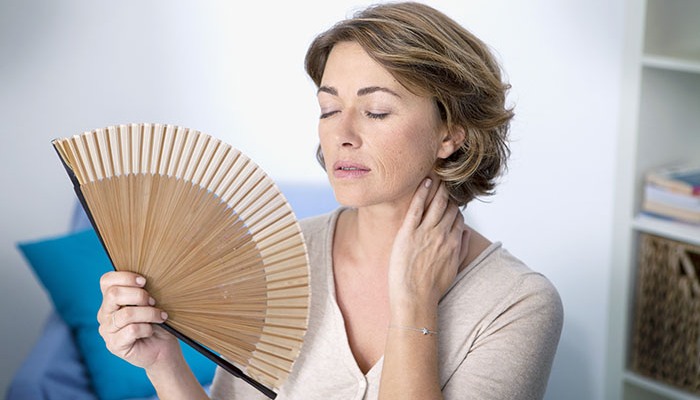
Menopause simply means marking the end of a female’s reproductive period. This is something women experience as they age. It does not occur overnight! It is a gradual process.
This gradual process is usually known as Perimenopausal phase which is a completely different transition for every woman. It is a very challenging phase for every woman, a woman might get irritated, and mood swings are the most common thing! Emotional breakdowns also occur. Earlier, the ideal age for menopause was around 45-50 years but, if a woman has attained early puberty, menopause occurs early too!
- Menopause comes with many complications and the most common complication is osteoporosis and heart disease.
- The bone mineral density gradually goes down during menopausal transition which may result in osteoporosis however, these symptoms vary in different women.
- Hot flashes occur very frequently.
- The entire menopause is divided into 3 phases which are Perimenopause, Menopause and Post Menopause.
- Out of these 3 phases, Perimenopause phase which can also be called as “time around menopause” lasts for the maximum time which involves all symptoms.
- Menopause and post menopause phase lasts for a shorter period.
- Apart from hot flashes and mood swings, women in menopausal stage also face excess stress, tiredness, fatigue and sometimes vaginal itchiness and drying.
- The main sign of menopause is irregular vaginal bleeding.
- Menopause is a part of every woman’s life and it is not a disease which can be treated. However, menopause can be managed and tackled if handled properly.
- Nutrition and physical exercise plays a key role in managing the menopausal symptoms
FOODS which help managing Menopausal Symptoms:-
(1) Include more fruits and vegetables in your diet
(2) Eat more beans
(3) Eat more of good fats and Omega 3 rich foods such as avocado, fish-Salmon, walnuts flaxseeds etc rather than saturated fatty acids.
(4) Consume good beverages; avoid consuming carbonated beverages and caffeine. Caffeine is a diuretic which puts load on kidneys to remove more amount of water than required which results in dehydration. Focus more on herbal teas which helps in relieving hot flashes.
(5) Balance your meals: – heavy breakfast, moderate lunch and light dinner should always
(6) Consume more of calcium containing foods as this mineral is very important for women after the age of 30. Adequate amount of calcium in diet decreases the risk of osteoporosis. Some of the natural foods high in Calcium are dairy products, ragi, sesame seeds etc
(7) Say no to high fat and high sugar foods!
(8) Add functional foods to your diet such as flaxseeds which is a super food! Raw Flaxseed should be ground and 1 tsp should be had and drink a glass of water over it.
(9) Exercise! It is a key to life a healthy life! 30 minutes of walk also acts as a stress buster!
Ladies out there at this stage of your life take care of yourself.
As you navigate through the various phases of menopause, may this article serve as a valuable guide to support your well-being. For more insightful articles on Women’s Health, explore here. If you seek further information or personalised guidance, don’t hesitate to reach out to our certified experts. Subscribe to GOQii’s Personalised Health Coaching here.
#BeTheForce




Is there drastic weight gain? I am experiencing it.
Yes, there is a drastic weight gain. 30 minutes of exercise can help you manage this issue 🙂
Thank you for such amazing and detailed explanation about menopause.
I am so glad that mere 30 minute of walk daily can help weight gain during the phases of menopause